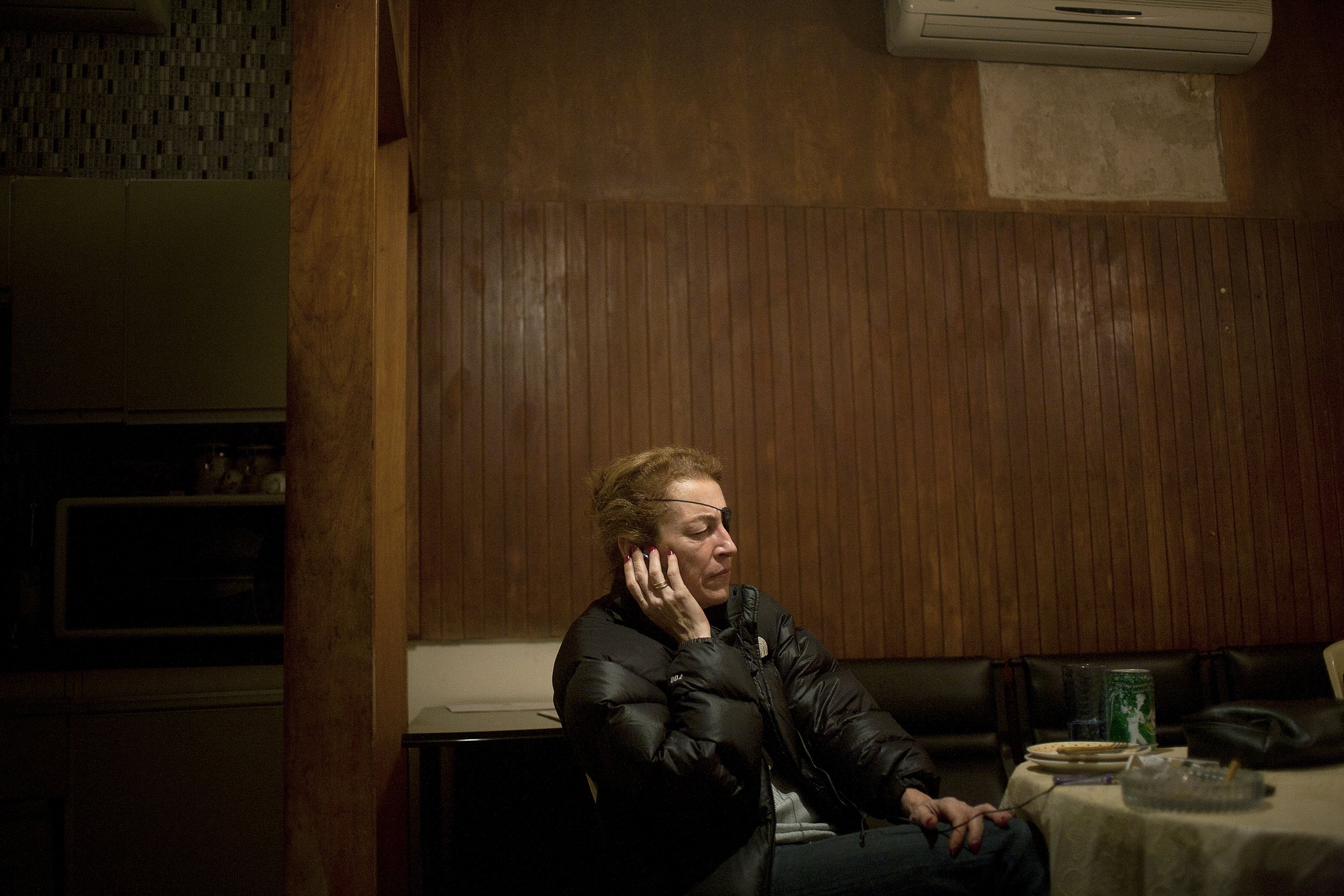
The following words are from the last dispatch journalist Marie Colvin ever wrote. They are from February 19, 2012, and they came from the Syrian city of Homs, then besieged by the forces of dictator Bashar al-Assad:
It is a city of the cold and hungry, echoing to exploding shells and bursts of gunfire. There are no telephones and the electricity has been cut off...Freezing rain fills potholes and snow drifts in through windows empty of glass.
And these words were written 25 years earlier, also by Colvin, then a recent Yale graduate who had just become a Middle East correspondent for The Sunday Times of London, the paper that would employ her for the rest of her life. The dispatch is from Basra, a city in Iraq, a city also under siege, this time by Iranian forces:
I took a bus which arrived at 8:30 a.m. at Saad Square in the heart of Basra. The shelling began at 8:45 a.m. The few pedestrians on the street started hurrying for cover.
One man stopped and gave me sound advice. 'It's not a good idea to walk around Basra when they are shelling,' he said. 'You're very exposed here."
She did not take that advice, not then, not ever, right up to the moment when an explosion in Homs killed Colvin, along with French photographer Rémi Ochlik. One of the world's foremost war journalists, she had explained in 2001 why she was compelled to always head toward the danger: "Going to these places," she said, "finding out what is happening, is the way to get at the truth."
On the Front Line: The Collected Journalism of Marie Colvin, published last week by HarperCollins, collects many truths, none of them pretty, all of them directly rebuffing that old patriotic line from Horace that "dulce et decorum est pro patria mori." Nothing is sweet, or noble, about the slaughter Colvin spent her life chronicling.
She reported on the 1995 assassination of Yitzhak Rabin by the Jewish extremist Yigal Amar, of the unseemly jubilation from Amar's fellow radicals ("I am very happy that the dictator Rabin is dead") and how this has "forced Israelis to face the dark netherworld of Jewish extremist groups." And she is with Yasser Arafat, of whom she wrote, "The PLO is run from moment to moment from Arafat's head."
She was in Serb-ravaged Kosovo, with a young girl named Basorta Jashari. The girl was 11, and she was caught in Europe's bloodiest conflict since Berlin fell. All that was left of her loved ones was "a pile of numbered black bin bags, each filled with the bloody clothing they had been wearing when they died."
She was in Sri Lanka, reporting on the insurgent Tamil Tigers. It was here that Colvin lost an eye, leading her to don an eye patch. Even this loss of vision she took in stride: "Everyone professes to like the patch. A designer friend offered to make me a party patch with rhinestones for evening wear; and even the Prince of Wales pronounced it 'very fetching' when I was introduced to him at a reception."
She went to Ethiopia, Chechnya and East Timor. Sierra Leone and Afghanistan. Iraq, again. She interviewed Muammar Gaddafi, who she first encountered back in 1986. She spoke to him again during 2011's Arab Spring, shortly before he was executed, a la Mussolini, by his own people. The tyrant of Tripoli told Colvin: "Today's presidents who say I should go, I say to you that you will serve out your terms and then you will retire _ but I will still be leader of the revolution." Fate, however, had other intentions.
And not only for Gaddafi, but for Colvin too. Her last assignment may have been the most dangerous, sending her into the western Syrian city of Homs, which was being aggressively shelled by pro-Damascus forces. The journalist Michael Weiss, who travelled to Syria for a Foreign Affairs for a piece titled "Ramadan in Aleppo," tells Newsweek that Colvin's "fatal mistake" may have been using a satellite phone, which the Syrian army may then have used to pinpoint where she and other Western journalists were hiding.
Weiss calls her "one the greats," which is a sentiment that has been widely echoed since her death. Patrick Cockburn, writing in The Independent, eulogized her with these words: "Marie, for all the violence she had seen, retained up to the end in Homs a sense of outrage at the sufferings of others."
In a way, that outrage is a sort of antidote to the violence, not merely its byproduct. There are people watching. There are people, like Marie Colvin, unafraid of truth.
Uncommon Knowledge
Newsweek is committed to challenging conventional wisdom and finding connections in the search for common ground.
Newsweek is committed to challenging conventional wisdom and finding connections in the search for common ground.
About the writer
Alexander Nazaryan is a senior writer at Newsweek covering national affairs.
To read how Newsweek uses AI as a newsroom tool, Click here.








